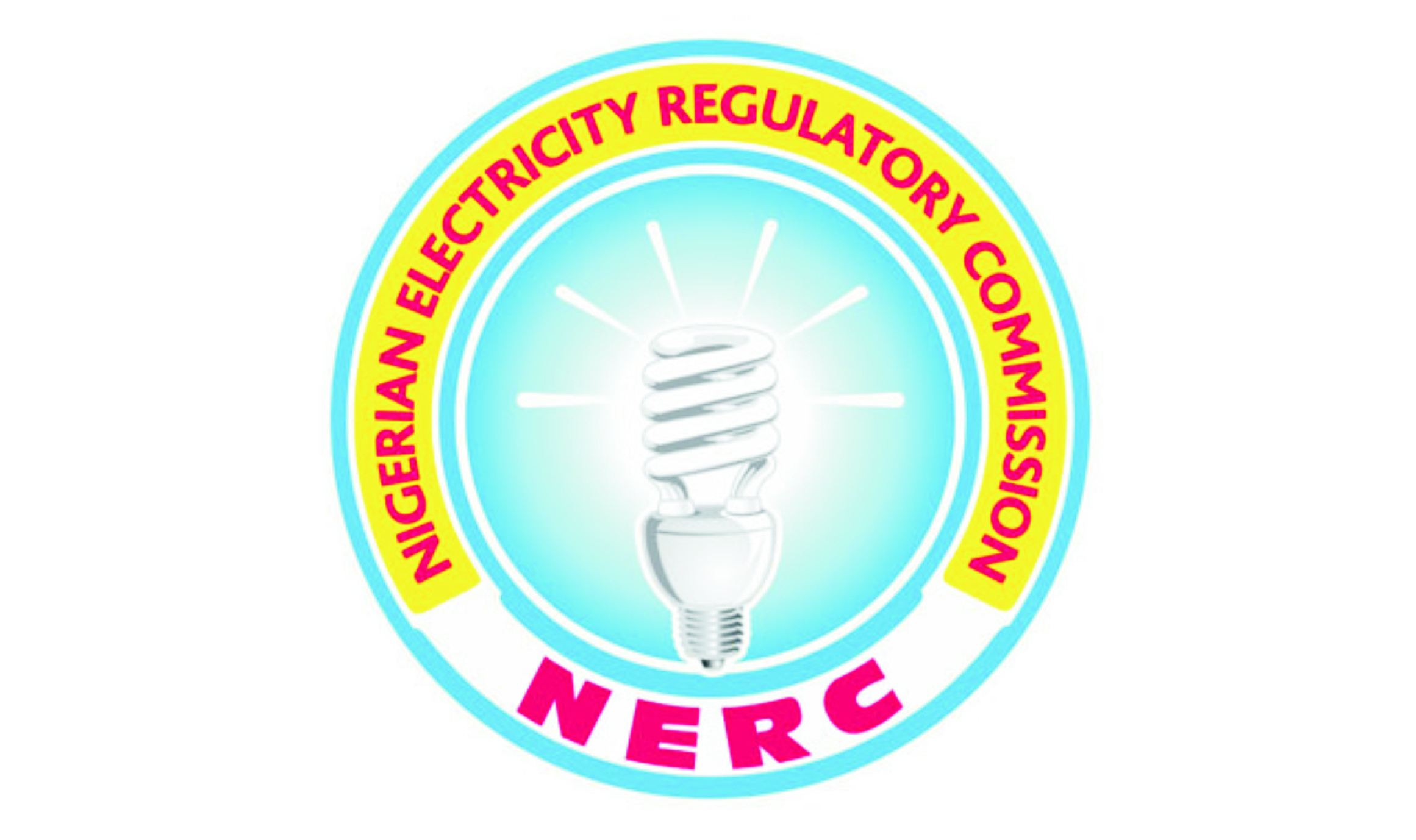Business
Niger Owes Nigeria N4bn For Power Supply – NERC

Niger currently owes Nigeria N4.22bn ($5.48m: $/N769.27 exchange rate) for power supply.
This is according to the just released first quarter report of the Nigerian Electricity Regulatory Commission.
Niger power firm, Nigerien Electricity Society, the report stated, was yet to remit the $5.48m invoice issued for power supply by the Nigerian market operator.
“None of the underlisted international customers made any payment against the cumulative $16.11m invoice issued to them in 2023/Q1; Paras-SBEE ($3.46m), Transcorp-SBEE ($3.85 million), Mainstream-NIGELEC ($5.48m) and Odukpani-CEET ($3.32 million).
“Out of N842.38m invoice issued by MO to all the eight (8) bilateral customers in the NESI, only North-South/Star Pipe made a remittance of N15.38m against its invoice of N24.69m”, it stated.
The NERC mandated the Market Operator to invoke the provision of the market rules to curtail the payment indiscipline being exhibited by the various market participants.
The Tide’s source had last week, reported that the power supply from Nigeria to the Republic of Niger was stopped on August 2.
Last week, ECOWAS, led by President Bola Tinubu, decided on sanctions against the military personnel in Niger, who toppled President-elect Mohamed Bazoum in a coup d’état.
NIGELEC is under contract with a power firm in Nigeria, Mainstream Energy, for the supply of electricity.
Nigeria also exports electricity to the Republics of Benin and Niger based on various Transaction Service Agreements.
In July, the source exclusively reported that Nigeria exported about N23.13bn worth of electricity to some neighbouring countries in 2022.
“Nigeria disconnected since Tuesday (last week) the high voltage line that carries electricity to Niger,” a report by AFP said, quoting industry sources through local production.
According to a report by NIGELEC, Niger’s sole electricity supplier, in 2022, 70 per cent of Niger’s share of electricity came from purchases from the Nigerian company – Mainstream.
Electricity supplied to Niger is produced in Kainji Dam located in Niger State.
However, to free itself from its energy dependence on Nigeria, Niger is working to complete its first dam by 2025.
Located about 180km upstream from Niamey, the Kandadji Dam is projected to generate 629 gigawatt-hours of electricity annually.
A separate report by the BBC also said major cities in Niger are facing rolling blackouts following last week’s coup.
Residents of Niamey, Maradi and Zinder had power for about an hour at a time before it was switched off for up to five hours. Power cuts like these are unusual in Niger, which normally has regular and reliable supplies.
The President of Nigeria Consumer Protection Network and Coordinator, of Power Sector Perspectives, Kunle Olubiyo, confirmed that ECOWAS would isolate Niger Republic from the electricity supply.
“About 60 per cent of power supply to Niger comes from Nigeria. Just like organised labour usually shuts down the national power grid as part of negotiations when all appeals might have failed to achieve results, Mr President (Tinubu) is the leader of ECOWAS at the moment.
“Disconnection of power supply is seen as a low-hanging fruit,” he stated.
Continue Reading
Business
NPA Assures On Staff Welfare
The Managing Director, Nigerian Ports Authority (NPA), Dr. Abubakar Dantsoho, has said the management will continue to accompany its port infrastructure and equipment modernization drive with the development of the welfare of its personnel.
Dantsoho made the disclosure recently while responding to the commendation by the Maritime Workers Union (MWUN) and the senior Staff Association of Statutory Corporations and Government-Owned Companies (SSASGOC) on the clearing of the age-long problem of employee stagnation, when the union paid him a courtesy visit at the Authority’s headquarters in Lagos.
A Statement by NPA’s General Manager Corporate & Strategic Communications, Mr. Ikechukwu Onyemekara, quoted Dantsoho as saying, “our Port infrastructure and equipment modernization drive will go hand-in-hand with continuous staff welfare improvement”.
The NPA MD disclosed that human capital development constitutes the key strategy for creating and sustaining superior performance under his watch, adding that “talent development constitutes a critical success factor for the actualization of the big hairy audacious goals we have set for ourselves especially in the area of Port competitiveness.
“The only way we can meet and indeed exceed stakeholders’ expectations is to deepen the competencies of our human resources assets and boosting their morale.”
Speaking further, Dantsoho commended the Honourable Minister of Marine & Blue Economy, Adegboyega Oyetola, for approving the strategic proposal of the Dantsoho-led Management team that solved the over a decade-long problem of lack of promotion that had fuelled industrial disharmony.
“I must specially appreciate our amiable Minister for graciously approving the multi-pronged stratagem we deployed that cleared all outstanding cases of employee stagnation by conducting examinations in one fell swoop and instituted timelines to forestall a recurrence of such anomaly”, he sad.
Speaking on behalf of the joint maritime labour unions, the President of Senior Staff Association of Statutory Corporations & Government-Owned Companies (SSASCGOC), Comrade Bodunde stated, “In addition to clearance of the backlog of stagnated promotions, we also wish to express our appreciation for the increase in productivity bonuses, provision of end-of-year welfare packages for staff, and the revision of the Financial Guide to the Condition of Service, which now addresses our members’ concerns about inflationary pressures.”
Nkpemenyie Mcdominic, Lagos
Business
ANLCA Chieftain Emerges FELCBA’s VP
National Secretary of the Association of Nigerian Licensed Customs Agents (ANLCA), Elder Olumide Fakanlu, has been elected Vice President of the Federation of ECOWAS Licensed Customs Brokers Association (FELCBA).
The election took place during the FELCBA Congress, held from Tuesday, June 17th to Thursday, June 19th, 2025, in Freetown, Sierra Leone.
Fakanlu’s emergence as Vice President marks a significant achievement for Nigeria within the regional customs brokerage community.
Apart from Fakanlu, Secretary of the Seme Chapter of ANLCA, Austin Nwosu, was also elected, securing the role of Secretary of Relations with Institutions.
The Nigerian delegation played an active role in the congress, with Michael Ebeatu nominated as a member of the electoral officer team, ensuring a fair and transparent election process.
The three-day congress concluded with delegates undertaking a visit to the Sierra Leone Port, offering insights into the host nation’s maritime operations, followed by a recreational trip to the Tokeh Beach.
The newly elected executives are expected to lead FELCBA in its efforts to harmonize customs brokerage practices, promote trade facilitation, and advocate for the interests of licensed customs brokers across the ECOWAS sub-region.
Nkpemenyie Mcdominic, Lagos
Business
NSC, Police Boost Partnership On Port Enforcement
In a bid to enhance more enforcement in the nation’s Port, the Nigerian Shippers’ Council (NSC) has reaffirmed its commitment to stronger inter-agency collaboration with the Nigeria Police Force (NPF).
The Council said the collaboration is aimed at enhancing stronger enforcement, compliance and improve operational efficiency across Nigeria’s ports.
Executive Secretary/Chief Executive Officer of NSC, Dr. Pius Akutah, made this known during a visit to the Inspector-General of Police, Dr. Kayode Adeolu Egbetokun, at the Force Headquarters, Abuja.
The visit, which he said, focused on strengthening institutional synergy, comes in the wake of growing responsibilities for the NSC under the newly created Ministry of Marine and Blue Economy.
Akutah emphasized the critical role of security agencies in supporting port operations and ensuring regulatory compliance.
He called for the posting of police officers to assist the Council’s monitoring and enforcement teams at key port locations including Lagos, Warri, Onne, Port Harcourt, and Calabar.
“The posting will complement the activities of our revived task teams and enhance our ability to enforce standards across the maritime logistics chain”, he said.
Earlier, the Inspector-General of Police, Dr. Egbetokun, assured the Council of the Force’s readiness to continue supporting the growth of the maritime sector.
The IGP acknowledged that compliance enforcement is essential to the successful implementation of Nigeria’s Blue Economy objectives.
“The NSC and NPF are expected to deepen collaboration in the months ahead, with a shared focus on building a secure, efficient, and competitive port environment”, to the IGP emphasized.
Chinedu Wosu
-
Sports2 days ago
Give Rest Of ‘94 Eagles Their Houses – Amuneke
-
News2 days ago
Senate Confirms Chibudom Nwuche S’South Dev. Commission Chair
-
Rivers2 days ago
Obalga SOLAD Presents Fire Extinguishers To Council …. Commiserates With traders over Rumuomasi Market Fire
-

 News2 days ago
News2 days agoTinubu Orders Civil Service Personnel Audit, Skill Gap Analysis
-

 News2 days ago
News2 days agoFour Internet Fraudsters Get Jail Sentences In PH
-
Sports2 days ago
President Federation Cup: Sanwo-Olu, Abdulrazaq Set To Grace Grand Finale
-
News2 days ago
Immigration Plays Strategic Role In Nation Building -Worika
-
Rivers2 days ago
FIDA, PCRC Train Police On Paralegal Cases

